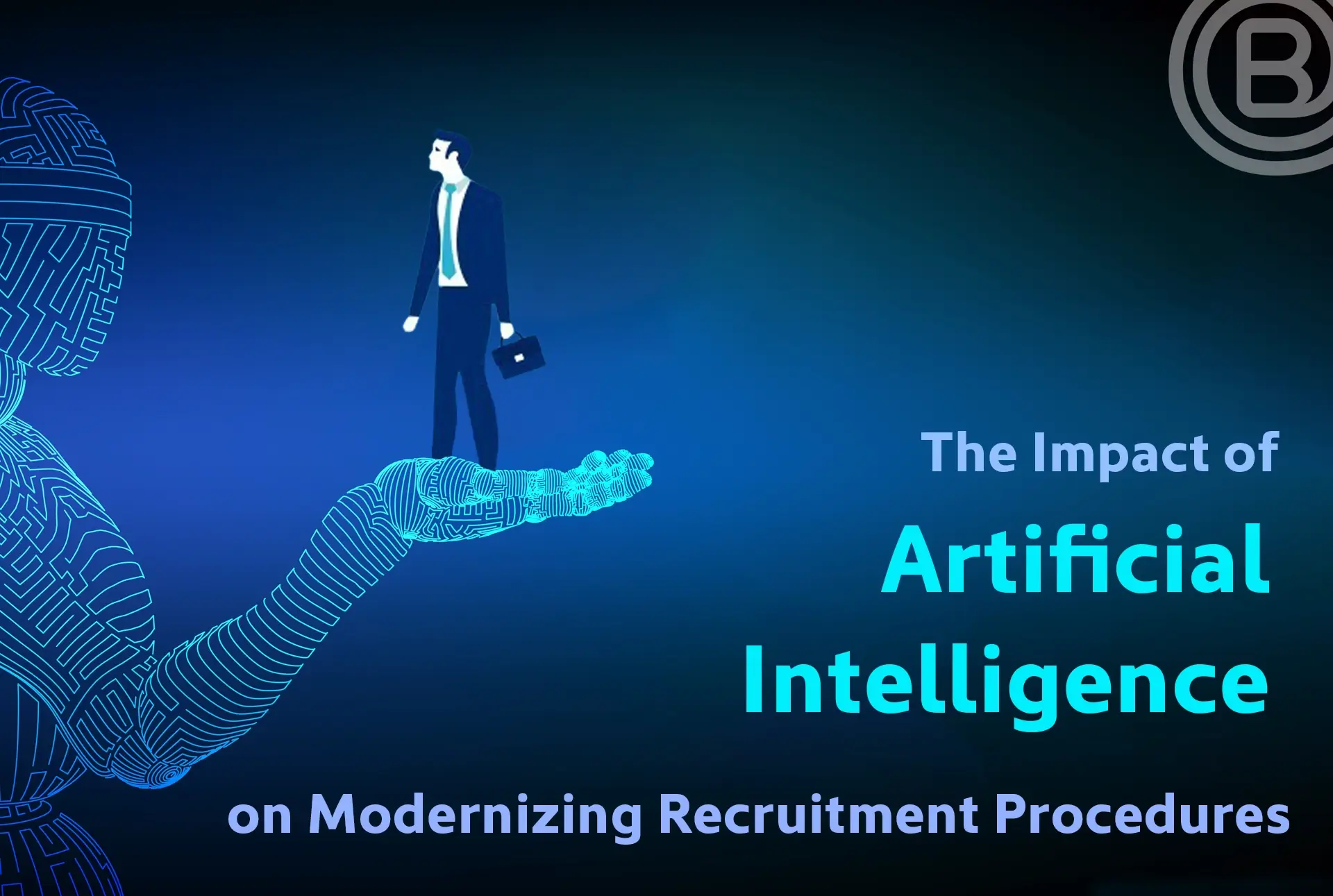Social recruiting, the utilization of social media platforms in the recruitment process, has become integral to modern recruitment. It encompasses leveraging platforms like LinkedIn, Facebook, and Twitter to attract, engage, and hire candidates. This approach holds immense importance due to its ability to reach a diverse pool of talent, enhance employer branding, and foster direct engagement with potential hires.
Recruitment companies play a vital role in harnessing social media’s power, employing targeted advertising, content marketing, and talent sourcing techniques to connect clients with top talent. The transformative impact of social media in recruiting lies in its ability to revolutionize traditional practices, empower proactive candidate engagement, and unlock new opportunities for talent acquisition.
This overview underscores the pivotal role of social media in shaping the recruitment landscape and highlights its potential to drive successful hiring outcomes.
Understanding Social Media Recruitment
Exploring social media recruitment involves examining the pivotal platforms recruiters leverage, including LinkedIn, Facebook, Twitter, and Instagram. These channels offer unparalleled advantages like extended reach and direct engagement, yet they also pose challenges such as navigating information overload and privacy considerations.
A. Key Social Media Platforms for Recruitment
- LinkedIn: Known as the professional networking platform, LinkedIn is widely used for recruiting purposes due to its large pool of professionals and job seekers.
- Facebook: Despite being primarily a social platform, Facebook offers powerful targeting options and groups that recruiters can leverage to reach a broader audience.
- Twitter: With its real-time nature and hashtag functionality, Twitter enables recruiters to engage with potential candidates and share job opportunities efficiently.
- Instagram: Increasingly popular among younger demographics, Instagram provides opportunities for visually appealing employer branding and storytelling.
- Others: Depending on the industry and target audience, platforms like YouTube, TikTok, and niche professional networks may also be relevant for recruitment efforts.
B. Advantages of Social Media Recruitment
- Expanded Reach: Social media platforms allow recruiters to reach a wider audience beyond traditional job boards and networks.
- Enhanced Employer Branding: By showcasing company culture, values, and employee experiences, social media helps attract top talent and differentiate the organization as an employer of choice.
- Direct Engagement: Social media enables recruiters to interact directly with candidates, fostering relationships and providing personalized experiences throughout the recruitment process.
- Cost-Effectiveness: Compared to traditional recruiting methods, social media recruitment often offers a more cost-effective way to source and attract candidates.
- Real-Time Insights: Social media analytics provide valuable data on engagement, demographics, and candidate behaviour, allowing recruiters to refine their strategies for better results.
C. Challenges and Limitations
- Information Overload: The abundance of information on social media can make it challenging for recruiters to stand out and capture the attention of candidates.
- Privacy Concerns: Recruiters must navigate privacy regulations and ensure compliance with data protection laws when sourcing candidates on social media.
- Candidate Quality: While social media provides access to a vast pool of candidates, not all may be qualified or suitable for the position, requiring careful screening and evaluation.
- Time-Consuming: Managing social media recruitment efforts, including content creation, engagement, and analytics, can be time-consuming and resource-intensive for recruiters.
- Algorithm Changes: Social media algorithms are constantly evolving, impacting the visibility of recruitment posts and requiring recruiters to adapt their strategies accordingly.
Tips for Effective Social Media Recruitment
Social media has revolutionized the recruitment landscape, offering recruiters unprecedented opportunities to connect with talent across the globe. To make the most of these platforms, it’s crucial to implement effective strategies tailored to the unique dynamics of social media recruitment. Here are some comprehensive tips to enhance your social media recruitment efforts:
A. Establishing a Strong Employer Brand
The image that a business has among its prospective employees is known as employer’s brand. It encompasses your company’s culture, values, mission, and reputation as an employer. Start by defining your employer’s brand and crafting a compelling narrative that resonates with your target audience. Share authentic stories, highlight employee experiences, and showcase your company’s unique selling points.
By portraying an attractive employer brand, you can differentiate yourself from competitors and attract top talent who aligns with your organizational values.
B. Targeting the Right Audience
One of the key advantages of social media recruitment is the ability to precisely target specific demographics and interests. Leverage the advanced targeting capabilities of social media platforms to reach your ideal candidates. Define your target audience based on factors such as job title, industry, skills, location, and interests. Tailor your recruitment messages and content to address the needs and preferences of your target audience, ensuring relevance and resonance.
Reaching the right audience with the right message can maximize the effectiveness of your recruitment efforts and drive quality applications.
C. Engaging Content Creation
Content is king in the realm of social media recruitment. Create diverse and engaging content that captures the attention of potential candidates and encourages interaction. Experiment with various content formats, such as videos, infographics, blog posts, live streams, and employee testimonials. Showcase your employer brand, company culture, and job opportunities in a visually appealing and informative manner. Share behind-the-scenes glimpses of your workplace, highlight employee achievements, and provide valuable insights into your industry.
Delivering compelling content can pique the interest of candidates and cultivate a positive perception of your organization.
D. Leveraging Analytics for Optimization
Data-driven decision-making is essential for optimizing your social media recruitment strategies. Use the analytics tools provided by social media platforms to track the performance of your recruitment campaigns in real-time. Monitor key metrics such as engagement rates, click-through rates, conversion rates, and cost-per-click to evaluate the effectiveness of your efforts.
Analyse the demographic data of your audience, identify trends, and glean actionable insights into what resonates with candidates. Continuously refine and optimize your strategies based on data-driven findings to improve your recruitment outcomes and maximize your return on investment.
E. Building Relationships with Candidates
Successful recruitment is not just about filling positions; it’s about building meaningful relationships with candidates. Actively engage with potential candidates on social media by responding to comments, messages, and inquiries in a timely and personalized manner.
Participate in relevant discussions, share valuable insights, and provide guidance and support throughout the recruitment process. Foster a sense of belonging and community among candidates by creating online forums, groups, or communities where they can connect with each other and with your organization.
Nurturing positive relationships with candidates can enhance their experience, build trust and loyalty, and ultimately, attract and retain top talent.
Case Studies: Successful Social Media Recruitment Campaigns
A. Company X’s Innovative Approach
- Challenges:
Company X, a leading technology company, faced the challenge of attracting top talent in a competitive market while also showcasing their unique company culture and work environment. They struggled to engage candidates effectively through traditional recruitment methods and needed a more innovative approach to stand out.
- Implementation:
To address these challenges, Company X developed an innovative social media recruitment campaign centred around interactive storytelling. They created a series of engaging Instagram Stories that provided an insider’s view of a typical day at the company. These stories showcased the company’s vibrant culture, collaborative workspaces, and exciting projects, giving candidates a virtual tour of the workplace.
- Solution:
By leveraging interactive storytelling on social media, Company X effectively engaged candidates and differentiated itself as an employer of choice. The immersive experience offered through Instagram Stories allowed potential hires to connect with the company on a deeper level and envision themselves as part of the team.
As a result, Company X attracted a pool of highly qualified candidates who resonated with their culture and values, ultimately leading to successful hires.
B. Top Tier Tech Company’s Targeted Strategy
- Challenges:
A top-tier technology company faced the challenge of filling a specialized technical role requiring specific skills and experience. They struggled to reach qualified candidates through traditional recruitment channels and faced the challenge of identifying and engaging professionals with the right expertise.
- Implementation:
To overcome these challenges, the top-tier tech company implemented a highly targeted social media recruitment strategy on LinkedIn. They utilized LinkedIn’s advanced targeting features to narrow down their audience to professionals with the required skills, experience, and qualifications.
Additionally, the company personalized their messaging to address the unique challenges and opportunities associated with the role, highlighting the company’s commitment to employee development and career growth.
- Solution:
By leveraging targeted advertising and personalized messaging on LinkedIn, the top-tier tech company successfully reached their ideal candidates and effectively communicated the value proposition of the role and the company.
The tailored approach resonated with qualified professionals, leading to a significant increase in applications from individuals who matched the job requirements. As a result, the top-tier tech company was able to fill the position with a highly skilled candidate who aligned with their goals and values.
C. Company Z’s Creative Content
- Challenges:
Company Z, a leading consumer goods company, faced the challenge of attracting attention and generating interest among potential candidates in a crowded and competitive job market. They needed a creative and engaging way to showcase their employer’s brand and culture to stand out from the competition.
- Implementation:
To address these challenges, Company Z launched a creative content-driven recruitment campaign on Twitter. They leveraged humour, wit, and storytelling to create a series of engaging tweets and memes that highlighted the company’s culture, values, and perks in a relatable and entertaining manner.
Additionally, Company X encouraged employees to share their experiences and insights on social media, turning them into brand ambassadors and amplifying the reach of their campaign.
- Solution:
By embracing creativity and humour in their social media content, Company Z effectively captured the attention of their target audience and generated buzz around their employer brand. The engaging and shareable nature of their tweets and memes resulted in increased brand visibility and organic word-of-mouth referrals.
As a result, Company Z received a surge of applications from qualified candidates who were drawn to the company’s culture and values, leading to successful hires.
These case studies demonstrate the effectiveness of leveraging innovative, targeted, and creative strategies in social media recruitment. By identifying and addressing challenges, implementing tailored solutions, and leveraging the power of social media platforms, companies can attract, engage, and hire top talent effectively.
Best Practices for Social Media Recruitment
A. Continuous Monitoring and Adaptation
- Utilize Analytics Tools: Regularly monitor the performance of social media recruitment campaigns using analytics tools provided by social platforms. Track key metrics such as engagement rates, click-through rates, and conversion rates to gauge effectiveness.
- Stay Updated: Keep abreast of changes in social media algorithms, platform features, and industry trends. Adapt recruitment strategies accordingly to maintain relevance and effectiveness.
- Experimentation: Experiment with different content formats, targeting options, and messaging strategies to identify what resonates best with your target audience. A/B testing can be used to compare outcomes and enhance performance.
- Feedback Mechanisms: Ask for feedback from candidates, recruiters, and stakeholders to gain insights into their experiences and preferences. Use this feedback to refine and improve recruitment strategies over time.
B. Compliance with Legal and Ethical Guidelines
- Legal Compliance: Ensure compliance with relevant laws, regulations, and industry standards governing recruitment and data privacy on social media platforms. Familiarize yourself with applicable legislation such as GDPR, EEOC guidelines, and local labour laws.
- Transparency and Fairness: Maintain transparency and fairness in recruitment practices, including accurate representation of job opportunities, non-discriminatory candidate selection, and protection of candidate data.
- Consent and Permissions: Obtain the necessary permissions and consent from candidates before sharing their information or engaging them in recruitment activities on social media. Respect candidates’ privacy and adhere to their preferences regarding communication channels.
- Training and Education: Provide training to recruiters and hiring managers on legal and ethical considerations related to social media recruitment. Emphasize the importance of compliance, integrity, and professionalism in all interactions with candidates.
C. Integration with Traditional Recruitment Methods
Consistent Branding: Coordinate messaging and branding across social media platforms and traditional recruitment channels to maintain consistency and reinforce your employer’s brand.
Complementary Strategies: Use social media recruitment as a complement to, rather than a replacement for, traditional methods such as job boards, career fairs, and employee referrals.
Amplification of Offline Events: Leverage social media platforms to amplify the reach of offline recruitment events and initiatives. Promote job postings, campus recruitment drives, and networking events to a wider audience through targeted advertising and organic outreach.
By implementing these structured and professional best practices, organizations can optimize their social media recruitment efforts, ensure compliance with legal and ethical standards, and maximize the integration with traditional recruitment methods.
As we bid farewell to this exploration of social media recruitment, it’s evident that the digital landscape has become the bustling epicentres of talent acquisition. Social media, with its dynamic allure, offers a treasure trove of benefits for savvy recruiters. From broadening the reach to sculpting a captivating employer brand and fostering direct engagement with potential candidates, its influence is undeniable.
Yet, as we peer into the crystal ball of recruitment trends, we foresee an exciting future. AI whispers promises of smarter hiring decisions, virtual realms host bustling hiring events, and videos offer a glimpse into the personality behind the CV. These trends beckon recruiters to embrace innovation and ride the wave of technological advancement.
In essence, social media isn’t just a tool; it’s a gateway to a vibrant ecosystem of talent. So, as you embark on your recruitment journey, remember to infuse creativity, adapt to the winds of change, and harness the boundless potential of social media platforms.
Embrace the adventure, seize the opportunities, and revolutionize your hiring strategy. You can find the talent you are looking for with just a few clicks. And don’t forget to explore The Impact of Artificial Intelligence on Modernizing Recruitment Procedures—it’s the next frontier in recruitment innovation. Do you feel ready to begin this journey?
Let’s take the leap together into this brave new world of recruitment possibilities!
Recommended Reading:
Hybrid Work Strategies Decoded: Selecting the Optimal Model for Your Organization
The Impact of Artificial Intelligence on Modernizing Recruitment Procedures









